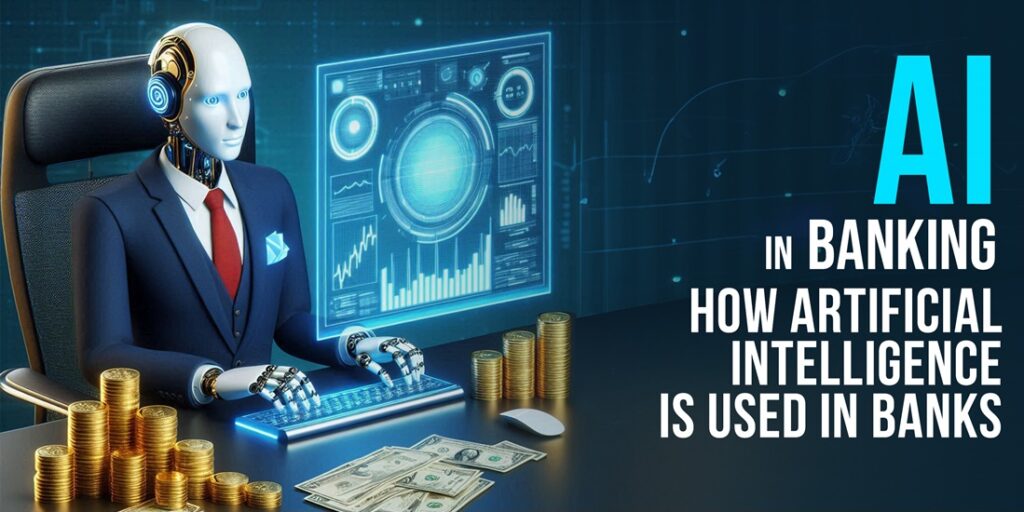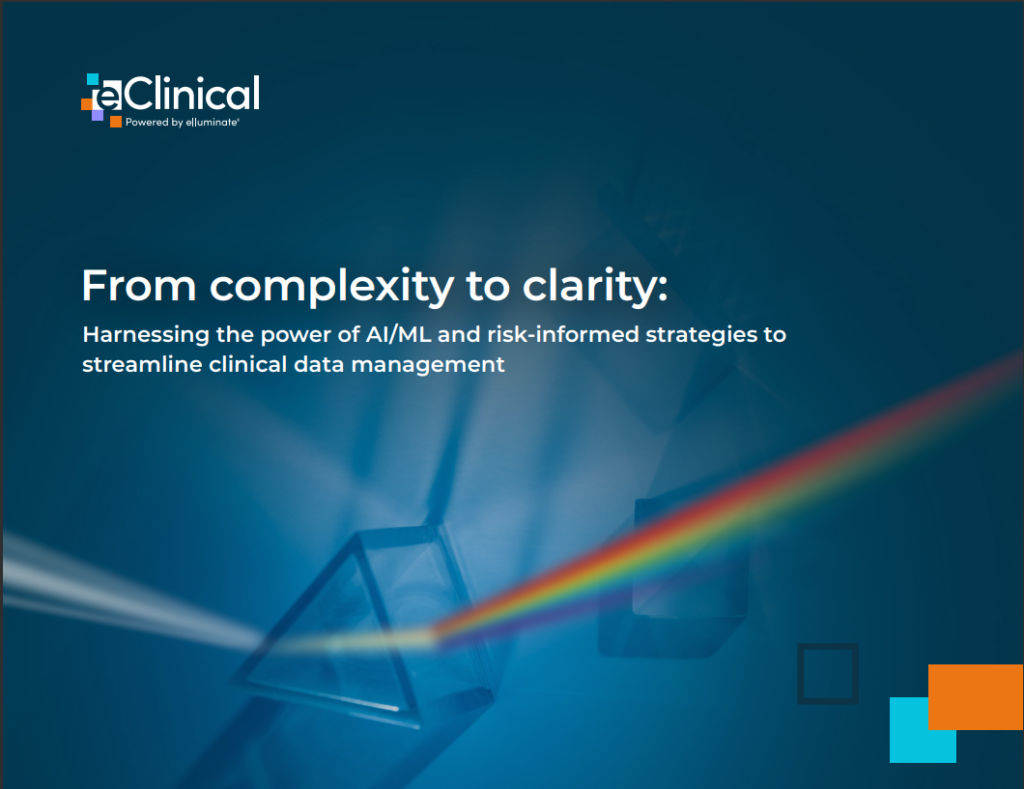Banks have historically been at the forefront of technological advancements, they are renowned for using computers as well as providing internet-based financial services. However, the rise of AI has brought with it a new dawn of innovations. These days, artificial intelligence (AI) is disrupting the entire banking sector in several ways.
These technologies range from customer support through chatbots to assisting in deterring complex frauds in the industry. Their innovations have enabled banks to provide customized solutions, operate more efficiently, and minimize risks better when compared with conventional methods.
Recent industry reports suggest the global AI in banking market size stood at $3.88 billion in 2022 and this figure is projected to hit $64.03 billion in 2030 at a CAGR of 32.6% from 2021 to 2030.
Therefore, the use of AI in banking continues to expand and introduce new vistas while reshaping financial services. Feeling curious to know how AI in banking is used? This blog post deals with how AI works in the banking sector and its impact on revolutionizing finance generally.
Why is AI needed in banking?
AI is picking up the pace in the banking sector mainly because it enhances customer service delivery, reduces fraudulent activities, simplifies credit scoring processes, and enhances risk management mechanisms. AI has found its way into banking systems driven by the significant cost savings, efficiency gains, and security enhancements that it comes with.
One significant factor for the increased usage of AI in banks is improving customer service quality. AI chatbots or power virtual assistants enable 24-hour seven days support which handles routine questions as well as transactions quickly and efficiently. It not only reduces waiting periods but also involves personal interactions for better customer satisfaction.
Fraud detection is also essential for AI to enter the area of banking. This has become a significant issue with modern cyber-attacks becoming more sophisticated by the day such that financial fraud stands out as one major concern among many others especially in the context of AI in banking. It is here that AI algorithms using real-time transaction data analysis on a huge scale can identify any irregularities and raise alerts on possible fraud activities.
The international business will spend more than $10 Billion on AI-based financial fraud detection and prevention by 2027 the study from Jupiter Research acclaims, reflecting an increase from $6.5B in 2022; hence, it proves the rising significance of artificial intelligence’s role in safeguarding monetary transactions.
As a result, the integration of artificial intelligence (AI) into banking is being motivated by the need to enhance efficiency, streamline customer service, and bolster security measures.
What major applications does AI have in banking?
The introduction of efficient, secure, and customer-friendly alternative solutions has been made possible by the introduction of Artificial Intelligence (AI) in the banking industry. Major areas where AI has been applied in banking comprise customer service, fraud detection, credit scoring, risk management, and process automation, among others including investment management and security as well. Here is how AI in banking works in different aspects
1. Customer Service
Banks employ AI chatbots to serve customers around the clock. This technology helps to simplify many functions such as customer account management and answering basic questions by customers about various bank products or services when there are no human employees on duty.
Erica is one of these systems developed by Bank of America for instance, which provides personalized financial advisory services among other banking-related services too. These systems analyze personal customer data to give product recommendations as well as financial advice possible with such systems which in turn leads to more tailored and pleasant banking services that increase loyalty among the clients resulting in repeat business.
2. Fraud detection and prevention
Using artificial intelligence, banks can monitor transactions in real-time to identify unusual patterns that may detect potential fraud cases as they happen. This helps them to track accounts in real-time and flag any suspicious activities, hence reducing financial fraud incidences.
AI also uses historical data that help predict or prevent future security breach incidences meaning it identifies those things which lead up to such breaches before they occur. Consequently, banks can stop fraudsters in their tracks because they have been stealing money from innocent people’s accounts which include yours whose funds still remain intact.
3. Credit Scoring and Loan Approvals
Artificial Intelligence takes time to analyze more data sources including social media activities other than just credit bureau records when determining eligibility for borrowing this lowers default rates significantly especially among people with limited credit history.
Similarly, AI takes less time evaluating loan applications, thus speeding up credit decisions and making them more customer-oriented besides increasing operational efficiencies by decreasing the approval processing timeline for loans.
4. Risk Management
Artificial intelligence helps in recognizing such things as trends in markets as well as predicting financial stability enabling banks to make prudent judgments before developing risk management plans which are preventive-based concepts anyway on time.
It assists in continually checking transaction records against prevailing laws all around the globe while at the same time coming up with compliance reports just so that there will be no non-compliance penalties whatsoever during checks done internally rather than externally making sure they adhere fully without any kind of error.
5. Process Automation
Data entry, and onboarding new clients’ transactions; among other repetitive manual activities such as customer service can be easily done through automation software tools developed with artificial intelligence technologies for bank installations.
Because of the AI, operational costs and human errors are minimized leading to more efficiency. Banks attempt to integrate AI in most of their services from internal operations to financial accounting systems which take place right there inside a bank.
6. Investment and Wealth Management
Wealth management is democratized by AI-powered robo-advisors who offer low-cost financial planning services without involving humans very much in the process. For instance, AI-powered software can automate an investment strategy based on historical stock market data and other relevant information sources. Thereby leading to intelligent decision-making while driving the performance of client portfolios through personalized advice.
7. Customer Insights and Marketing
AI uses customer behavior, transaction patterns, and preferences, hence recognizing their needs. The latter helps a lot in product offers and strategies used by different banks. Also, they can learn this way what various people will be interested in buying.
8. Enhanced Security
When it comes to security enhancements such as those made through biometric authentication measures i.e. facial recognition or voice print analysis would work well with AI. Biometrics face recognition, Voice Recognition, and Fingerprint Scanning systems empower banks to strengthen their existing security system.
Conclusion
AI revolutionizes banking by spearheading change within financial institutions that leads to high levels of productivity, safety, and customer satisfaction. From delivering superior customer experiences to improving credit scoring systems, AI has taken over various functions within banks.
This huge shift is attributed to real-time analysis of big data, provision of personalized engagements, and forecasting abilities that are unattainable through traditional methods. It will transform into a dynamic and all-inclusive ecosystem within an undeveloped banking structure.
About the Author

Ishan Gupta is the CEO and Co-founder of RipenApps, a leading web and mobile app development company specializing in Android and iOS app development. Deploying feature-loaded mobile & web app solutions to SMBs globally transforms business all around.
Sign up for the free insideAI News newsletter.
Join us on Twitter: https://twitter.com/InsideBigData1
Join us on LinkedIn: https://www.linkedin.com/company/insideainews/
Join us on Facebook: https://www.facebook.com/insideAINEWSNOW





Speak Your Mind